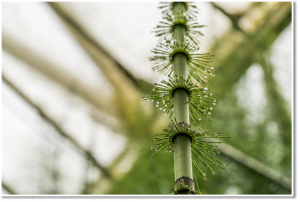
Echinocerus stramineus cactus. They have lost their leaves which helps prevent water loss. The remaining parts at the base of the leaves have become protective spines.
Ever wondered how plants have evolved to defend themselves? If you were a plant how would you stop something eating you? Poison? Spines? Pretending to be something else? Our new free online taster course explores this fascinating subject.
This course was developed by James Clugston who is a Ph.D. student studying at the University of Edinburgh. This course was developed during his professional internship for postgraduate students with the help of the Online Learning Team at RBGE and is an introduction to the amazing world of plants as well as to the world of online learning! So if you would like a taster as to what online learning is like, try this taster course:
Go to the course (opens in a new tab, Login as a Guest).
Completing this course will give you £10 off our new online ‘Getting Started with…Botany’ course launching in the Autumn.
PropaGate Learning is RBGE’s online learning environment where students are currently studying a range of courses: RHS level 2 and 3 and RBGE Diplomas in Botanical Illustration, Garden History and Herbology. It also supports a number of other courses. Look out for the Certificate in Botanical Illustration launching in October. Go to onlinecourses.rbge.ac.uk for more information.


